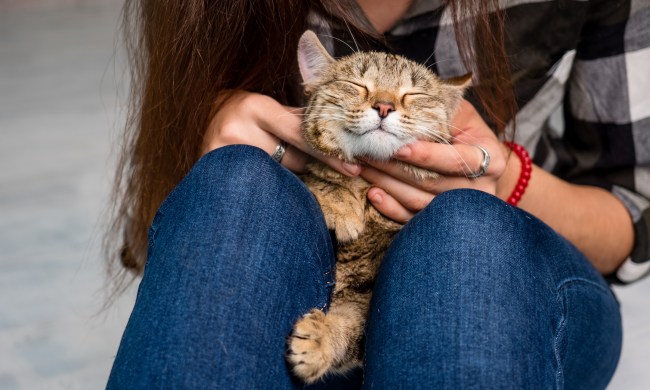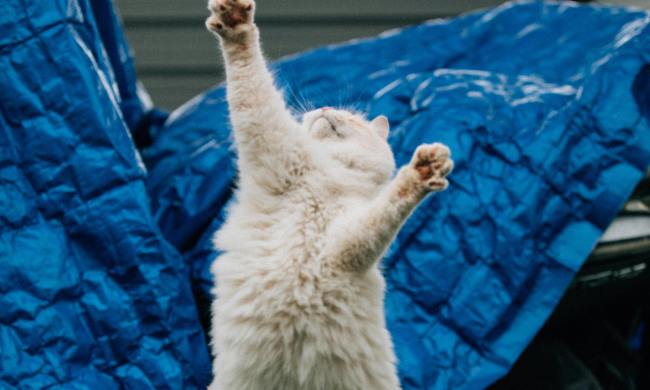With over two million adoptions taking place at animal shelters in the US every year, pet lovers have every reason to celebrate. But it’s not all sunshine and rainbows. For “special needs” animals like blind cats, the adoption rate is much lower. It takes a wonderfully special kind of person to adopt a disabled fur baby, but those who do give special needs animals a forever home don’t regret it.
Not only are you saving a life when you adopt a disabled pet, but you’re also setting an example for family members, friends, and neighbors. And, pet parents of disabled fur babies will tell you that their three-legged dog and blind cat rarely act disabled. Are you tempted yet? Here’s what you need to know about how to care for a blind cat.
Spoiler alert: it’s not as difficult as it sounds!
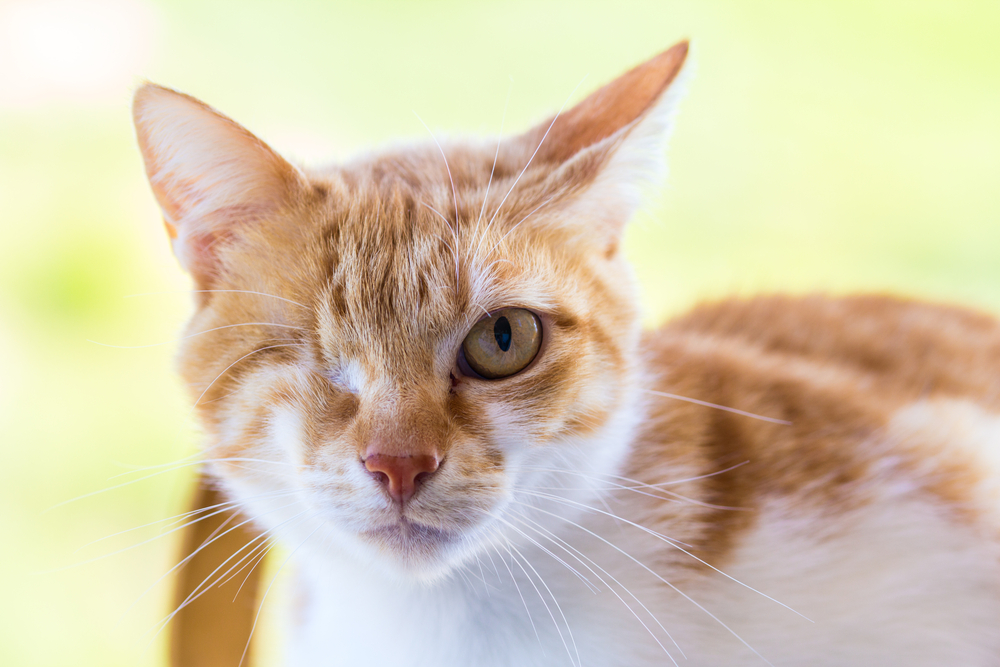
What causes blindness in healthy cats?
Did you know that the average lifespan for an indoor cat is between 12 to 15 years? Every decade, the average lifespan of our feline friends increases, which is music to the ears of pet parents all around the world. With certain breeds living as long as 18 years or longer, your fur baby might even live to be 20 years old. If you’re incredibly lucky, your cat might live as long as Creme Puff, a 38-year-old cat who lived to the ripe old age of 38 years and 3 days despite a questionable diet consisting of bacon, red wine, and coffee with — you guessed it — lots of cream.
Despite being a relatively hardy species, cats are not immune to injuries or illnesses, some of which can result in scars, hearing loss, loss of limbs, and blindness. But most cats aren’t blinded in accidents or fights. According to Dr. Thomas Kern, an associate professor of ophthalmology at Cornell University’s College of Veterinary Medicine, the most common cause of feline blindness is eye disease. Dr. Kern says, “Most of these animals have eye disease as a primary disorder: they have no other health problems.”
Is it hard to care for a blind cat?
If you’re caring for a cat who recently lost her sight, successfully treating the cause of her vision loss is an essential part of becoming her caregiver. While some cats lose their sight due to an infection that developed as a result of eye injury, Abyssinian and Persian cats have a genetic predisposition for Progressive Retinal Atrophy, also known as PRA. Other causes of blindness include glaucoma, conjunctivitis, entropion (a painful condition that causes the eyelid to fold inward), and uveitis (the veterinary term for eye inflammation). According to Dr. Kern, conjunctivitis is the most commonly diagnosed disorder of the feline eye.
However, once the cause of your cat’s blindness has been treated — or if you’re adopting a cat who’s been blind for a while — you’ll find that caring for your feline friend isn’t drastically different from caring for any other cat. Here are a few helpful tips that can help make the process easier for you and your fur baby.
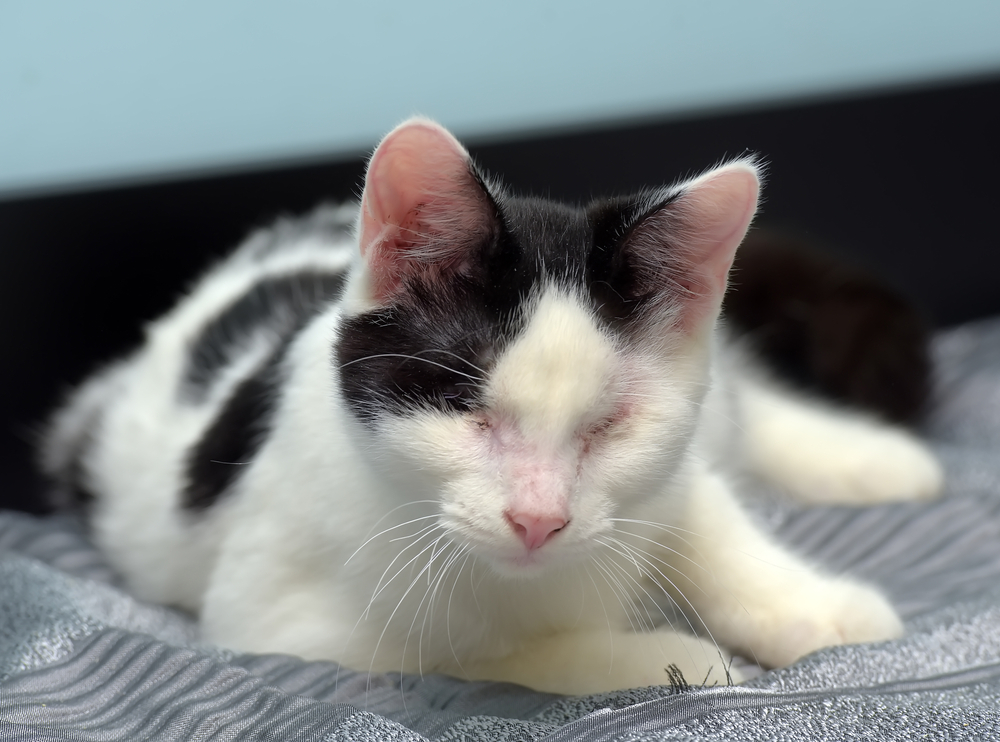
Keep your blind cat indoors
While we’re staunch proponents of keeping all cats indoors, it’s especially important to prevent your fur baby from escaping the house. Your cat’s other senses will help him navigate the world around him, but your beloved fur baby isn’t Daredevil. His undeniable olfactory talents and keen hearing notwithstanding, the outside world is a hostile place for a blind cat. He won’t be able to see predators coming, nor will he be able to see oncoming traffic, so please keep him indoors.
Spend more time talking to your cat
Without her vision to guide her, your blind kitty will need you to talk her through her new routine. Call her by name when it’s time for dinner, and try not to approach her suddenly when her eyes are closed or she’s looking in the opposite direction. Greet her warmly before you touch her rather than sneaking up on your kitty. A startled cat may scratch or bite to defend herself, and we don’t blame her.
Maintain a stable home
If your cat has recently lost his sight, now is not the time to redecorate your home. Your cat knows where everything is because he’s already marked it with his scent. And if he’s a new addition to the family, don’t worry about him finding his way. A cat’s whiskers are so sensitive that they can pinpoint the location of a toy, their favorite bed, or potential prey using the vibrations created by sounds we can’t even hear.
(Okay, so maybe blind cats are a bit like Daredevil, after all.)
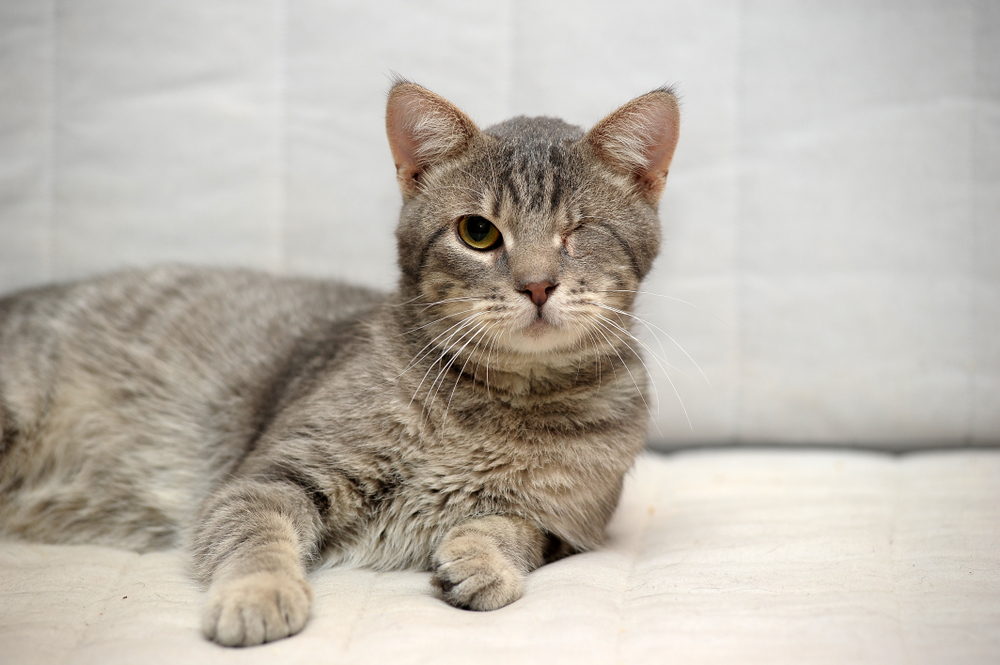
What does a blind cat need?
Just like all cats, blind cats need food, water, oxygen, and a loving home if they’re going to thrive. Your blind cat may require a bit more patience as she acclimates to her environment and readjusts to finding her food, water, and litter box, but she’s ultimately more like her sighted counterparts than she is different. Above all, blind cats need dedicated pet parents who will love them for the rest of their lives.


